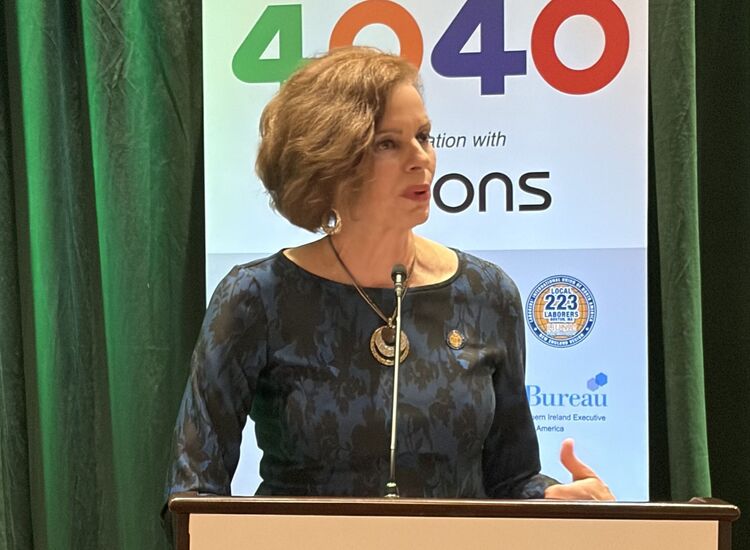On the eve of the 30th anniversary of the death of Bobby Sands on hunger strike the leader of IRA prisoners in the H-Blocks at that time has spoken of the days leading up to Sands embarking on his fast.
Bobby Sands died on May 5, 1981 after 66 days without food.
Brendan “Bik” McFarlane recalled. “We were at Mass, everyone was swapping notes and chatting. Bobby says to me, ‘Is everything sorted?’ I say, ‘Yeah.’
“He asked about replacements. I didn’t want to be talking about it with him but he said, ‘Who’s replacing me?’ I was shocked. I said, ‘What?’ and he said, ‘Have you got your head around this? I’m not going to be here in a few months, you better know what you are doing. Now, who is replacing me?’
“I told him it was Joe [McDonnell] and he said, ‘Good choice, he will never let you down.’ I couldn’t believe it.”
Over the next four months nine more IRA and INLA prisoners were to die on hunger strike in their campaign for political status.
Five years earlier, the status had been withdrawn by the British government, a move that eventually led to the no-wash protest by prisoners and finally the 1981 hunter strike.
Recalling those days McFarlane said: “As well as being the first hunger striker and being elected [MP for Fermanagh/South Tyrone while on hunger strike] Bobby was also such a prolific writer, a poet, a musician, a teacher. He was a poetic thinker and a political animal, a hard-nosed negotiator and a friend. He had all that creativity in the one structure.
“I shared a cell with Thomas McElwee [the ninth hunger strike to die] for a while and he was mighty craic. They were all ordinary guys from ordinary backgrounds, both urban and rural, but they lifted themselves to extraordinary feats.”
After the death of Mickey Devine the hunger strike was called off by the prisoners. Over the following months the five demands that the prisoners were demanding were granted.
“But we came through it,” said McFarlane, “and we blasted criminalization and the myth of no support for the republican struggle into a bygone era. Thatcher was totally defeated on the back of ten men saying to the Brits, ‘No way will you use us to damage this struggle,’ and it actually turned the tide in entirely the opposite direction.
“People wonder how did it get to that level, but it was such a highly politically charged issue, not justa prison dispute. The political ramifications of success or failure on either side were immense. The Brits laid out the battleground, they were going to crucify us and we had to respond.
“We had to protest and resist, or surrender, and that was never going to happen. Never going to happen.”










